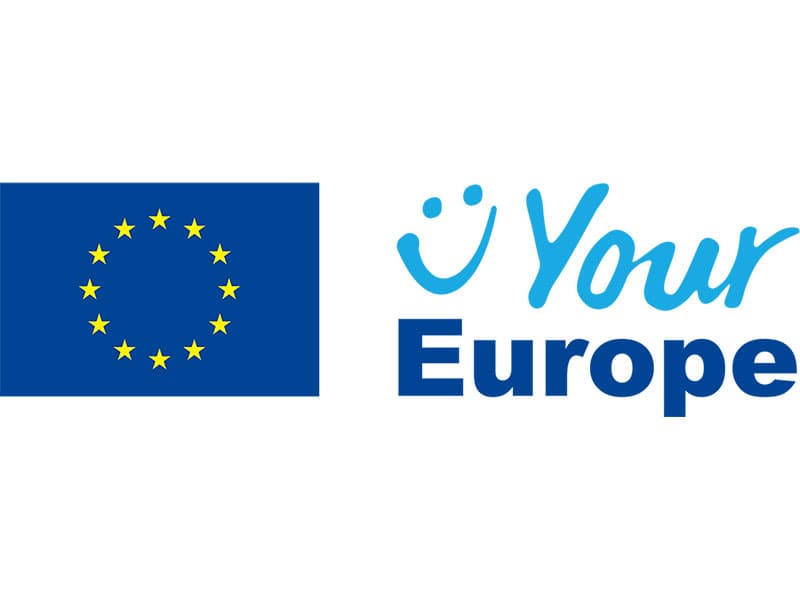Change of name on marriage
When two people get married, the couple may choose to change their names in one of the following ways:
If you wish to travel abroad soon after your marriage, be aware that you will have to be issued with a new passport if you change your name. Please contact the relevant passport office in good time before you get married.
If you have specific questions about changing your name, please contact the relevant registry office
Joint family names
The couple can decide to adopt the family name of one or other partner as their shared family name. If a name consisting of multiple parts is chosen for this purpose, you can use the full name or parts of it as the joint family name.
If you have already changed your family name as a result of a previous marriage, you can use the family name you took after that first marriage as the joint family name following a subsequent marriage.
Double-barrelled married names
Married couples can choose to use a family name composed of both partners' surnames as their joint family name. However, to avoid excessively long and complicated names, such names must not consist of more than two elements.
The partner whose family name is not the shared family name can decide before the marriage whether they wish to use the shared, doubled-barrelled family name or continue to use the double-barrelled surname they had before the marriage . Any double-barrelled name they choose to use must not be made up of more than two elements.
The elements of all double-barrelled names must be separated by a hyphen.
Children will take the joint family name used by their parents. However, parents may choose to give their children the original double-barrelled family name of one or other of their parents. For more information about the laws governing children's names, go to oesterreich.gv.at.
- Mr Müller marries Ms Berger. They agree that Mr Müller should keep his original surname, and that Ms Berger should choose a double-barrelled name once they are married (either Müller-Berger or Berger-Müller). Their children can also use this double-barrelled name.
- Ms Müller marries Ms Berger. They agree that they will adopt a joint double-barrelled surname composed of their family names prior to marriage. This name will be either Müller-Berger or Berger-Müller.
- Mr Müller-Zepelin marries Mr Berger. Their shared family name should be Müller-Zepelin. Since no double-barrelled family name can be made up of more than two elements, there is no space to incorporate 'Berger' into the family name.
- Mr Müller-Zepelin marries Ms Berger-Mayer. Their shared family name should be Zepelin. Mr Müller-Zepelin will be known as Mr Zepelin. Ms Berger-Mayer can choose to be known as Zepelin-Berger, Berger-Zepelin, Zepelin-Mayer or Mayer-Zepelin.
- Mr Müller-Zepelin marries Ms Berger-Mayer. They agree that they wish to adopt a joint surname based on their surnames before marriage. They can use any double-barrelled name made up of the component parts "Müller", 'Zepelin', 'Berger' and 'Mayer' (e.g., Müller-Mayer; Zepelin-Berger, Mayer-Zepelin, etc.).
If a partner in the marriage elects to use a double-barrelled family name, the new name must be used for all official purposes with immediate effect (e.g. the new name must be shown on their passport and driving licence, as well as in any contractual documents).
Requests to change your official surname must be submitted to the relevant registry office.
Partners retaining their original surnames after marriage
If a newly married couple do not specify a new joint family name, they will keep the surnames they held before marriage.
Children's surnames when their parents do not share a surname
Children born following their parents' marriage:
If a newly married couple do not specify a new joint family name, they will keep the surnames they had before marriage. In this situation, a decision then has to be taken as to the surname to be given to any children they may go on to have. Children may be given the surname of either parent. Alternatively, the parents may decide to give their children a double-barrelled surname consisting of both parents' surnames. Such names must not be made up of more than two elements, and the elements must be separated using a hyphen.
Unless specified to the contrary children automatically take their mother's surname, even if this surname is double-barrelled.
For more information on the rules governing children's surnames, go to oesterreich.gv.at.
Legal basis
Sections 93 bis 93c and 155 to 157 of the Allgemeines bürgerliches Gesetzbuch (ABGB)
As a rule, citizens of other countries are subject to legislation applicable in the country of which they are a citizen. If they change their name in Austria, this change may not be recognised in their home country.
Legal basis
Sections 93 to 93c and 155 to 157 of the Allgemeines bürgerliches Gesetzbuch (ABGB)

